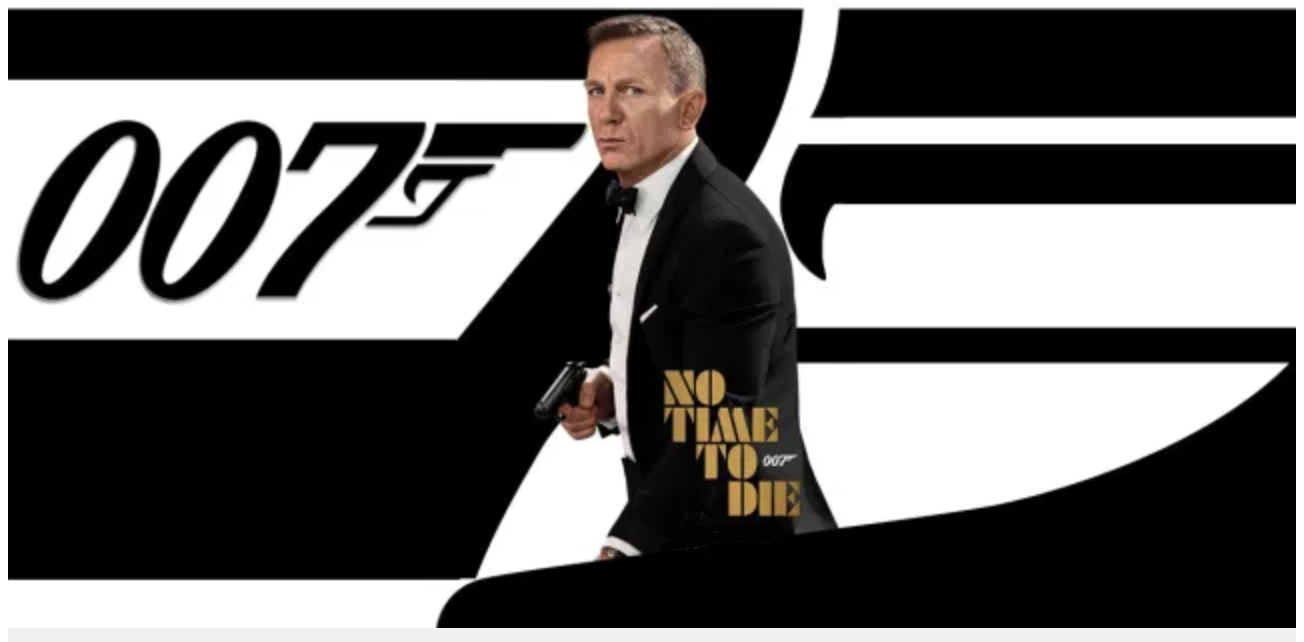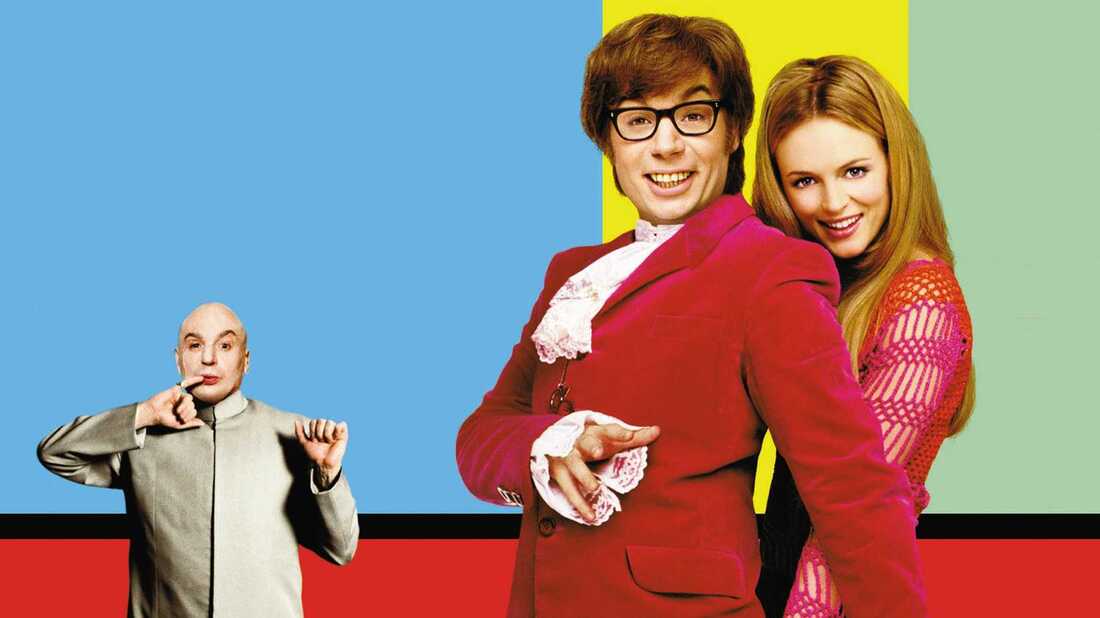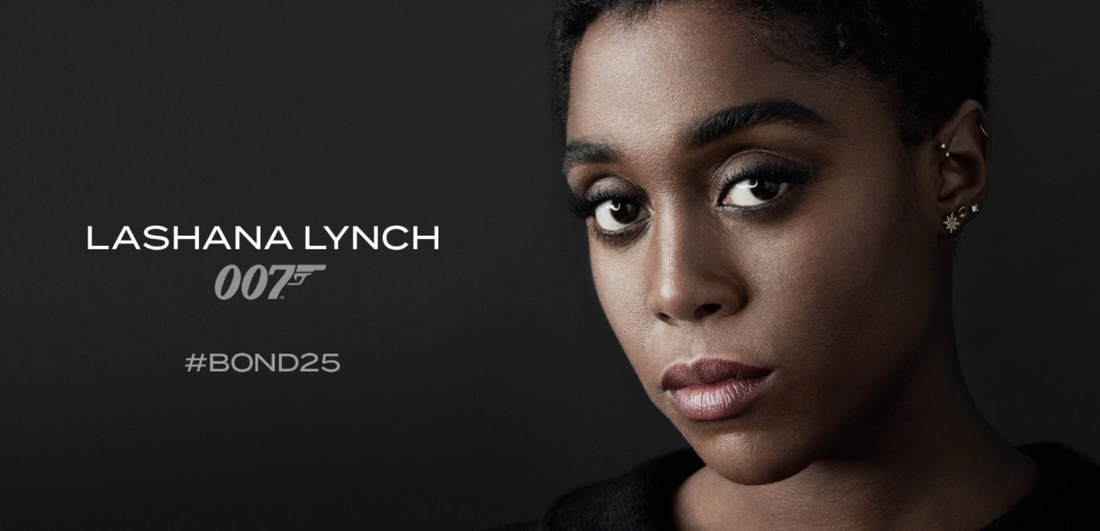|
by Dan Collacott and a dash of TeeJ Sutherland Due to Covid, No Time to Die has, again, been moved to a April 2021 launch and with it comes Daniel Craig’s swan song as the iconic MI5 double agent. Since Ian Fleming created him in 1953, James Bond has been played by seven actors in twenty-seven films. The character is a long standing staple of British culture, the Eon film franchise is probably the most popular and profitable export we have as a nation, not to mention the fact it is the sixth highest grossing film series of all time. But is Bond a national treasure to be celebrated or an outdated icon best consigned to history? If there were a bronze statue of Bond, should it be thrown into a canal by an angry group of #MeToo protesters? Should the next Bond give up drinking and women? Should they change skin colour or even sex? Many feel a suave, violent, wisecracking, womanising, chauvinistic, killer alcoholic doesn’t belong in modern day culture. But recent films have evolved beyond the smirking narcissist killer brilliantly depicted by Connery and Moore (and to a lesser degree Lazenby) in the 60s 70s and 80s. Timothy Dalton’s Bond, in the late 80s, even seemed to add a bit more weight and seriousness to the films. But then after a six year gap, Piers Brosnan, newly freed from his Remington Steele obligations, was given the mantle and his Bond films doubled down on the franchise’s best and worst tropes, dialing up the camp, quotable catchphrases, characters and cartoonish villains. This was not helped by the fact that at the same time the Austin Powers trilogy made the franchise look even more outdated, goofy and absurd. Mike Myers putting a hilarious but slightly embarrassing exclamation mark on everything that made the Bond franchise famous. Many argue that he was in fact a pretty solid Bond but sadly mired (Goldeneye aside) with a batch of sub par films that didn't do him justice. That being said in terms of revenue two of his films still rank in the top ten revenue earners in the franchise so there was definitely still an appetited for the franchise with his final film Die Another Day bringing in an eye watering $259.6 million in domestic revenue (adjusted for inflation). If you're interested here's how they all rank after inflation:
Thankfully, after Brosnan, the writers and producers made a course correction, with Daniel Craig quietly dialing back the quotable one-liners and ‘clap every time they do that’ moments. The character of Bond even began to bear responsibility for his actions, visibly processing the long-term effects from his violent actions. In fact, Craig’s Bond ran like a 70s Aston Martin, all stylish polish and veneer on the outside but under the hood a grizzled PTSD war veteran engine, hiding his pain with fast brutish machismo. His take on the character seemed an apt response to the American franchises like Bourne and Mission: Impossible that were for a time ‘doing 007’ better than Bond was. Even if the Daniel Craig films have been of varying quality, his Bond was able to re-establish the franchise as the top of the spy film game all whilst producing a knowing nod to the past (even if he did sip a Becks rather than a Martini). The recent films have made sure women, cars and gadgets have still remained, just not quite as loud and in-your-face as the past movies. Despite this recent modernisation, many are debating what Bond could or should be in his next incarnation. And for the next incarnation, there’s certainly no shortage of names lined up to take over the mantel of the best-dressed killer alive. Aside from the recent hot favourite, Tom Hardy, we also have Boyega, Heughan, Hiddlestone, Elba, in the frame to name but a few. So is it time that the Bond tropes of old were buried with his hundreds of victims? Does the next MI6 double agent need to be bedding women during every action filled romp? Can the headcount be reduced, the alcohol swapped for a kale smoothie, the suits swapped for a recycled hemp tracksuit? Does Bond even need to be a white man in his 30-50s? Does he even need to be a man? After all, Doctor Who, another well-established British franchise, was able to transition to a female in the lead role after the fantastic Jodie Whittaker jumped into the Tardis. No Time to Die has already given some angry fan boys a swerve by passing the 007 call sign over to Lashana Lynch. Is it time to retire all of Bond’s most outdated tropes and make ‘him’ a ‘her’? There is no right or wrong answer to that question. It can certainly be argued that there is no reason to take pride in the franchise’s often awkward and inappropriate past, but equally there is no reason to pretend it didn’t happen. Ian Fleming’s James Bond reflected the times it was written in, the character was even based on a real life person. Society has evolved and grown since so Bond needs to continue and evolve to better reflect society. But to the same degree, the film series needs to retain some of the identity that makes each film ‘a Bond film’. If the actor who played Bond depicted him with an accent other than British, is he still Bond? If the actor bore all the same trademarks but was female, would that be enough for the fans to accept them? After all, we already had Dame Judy Dench playing Bond’s boss in the recent films. It is hard to see why the post Daniel Craig Bond couldn’t be a different skin colour, as being white has nothing to do with being British. No reason for them not to change sexuality either. But surely there is no need for the character to change sex? Not because a female Bond wouldn’t work, more a case of why can’t there be a new female double agent character written in the same spotlight? Brought in as a partner to James Bond, before spinning off into her own series as part of the same franchise? Hopefully this is the path the writers give Lashana in the new film. Esteemed and longstanding Bond franchise producer, Barbara Broccoli, was quoted in a Variety interview saying, “He can be of any colour, but he is male”. She went on to state, “I believe we should be creating new characters for women—strong female characters. I’m not particularly interested in taking a male character and having a woman play it. I think women are far more interesting than that.” Speaking of strong female characters in action franchises, isn’t that what Black Widow is? Ok, yes, she’s Russian but that aside there are enough similarities to suggest that the world is ready for a British female-fronted spy franchise. Although not firmly in the Bond mold, Atomic Blonde, Red Sparrow, Anna and Official Secrets have already laid some strong groundwork. Not to mention the brilliant screenplay for Red Joan. We mentioned earlier that Doctor Who could be a woman, but only because the character’s identity and even sexuality has always been ambiguous. The character of Doctor Who has always had an otherworldly feel - alien, mysterious, wonderfully unencumbered by weighty identity tropes. Doctor Who is defined by his, or her, personality and endless ever-evolving story and origins; their gender is strangely unimportant. “There's no reason that the Doctor would have to be a man upon regeneration, in-universe. Regeneration can cause various changes, including skin colour, outward species, and sex.” (sci-fi stack) This type of creative freedom is also more typical of science fiction, which as a genre allows more room for reinvention and reinterpretation of previously established norms. Especially when it comes to the role of women in fiction. “One of the reasons I always gravitated toward science fiction was because that was where women were the most thought out, and they had the most layers and they were the most interesting and multidimensional.” Katie Sackoff. Bond, however, doesn’t yet have that same room for maneuver, but whoever takes the mantle next can further help grow and redefine the character one film at a time. Bringing the incredibly talented Phoebe Waller-Bridge onto the writing team for No Time to Die, was certainly a step in the right direction in trying to change the role and perception of women in Bond films. It is also worth noting that us Brits (the English in particular) can be quite awkward at celebrating our national cultural identity - football hooliganism and right-wing nationalism helped pretty much ruin supporting the England football team and displays of the St George Cross flag left many with a bad taste in the mouth due to its use as a symbol for many racist groups. We don’t have many characters we can really call our own any more (Harry Potter and Paddington Bear don’t count). James Bond is one of the few truly British cultural icons still garnering a rabid fan following. To many of those fans, James Bond is more about escapism than realism - he represents the loner, the underdog, the never say die hero we all wanted to be growing up. With flash fast cars, incredible planes and other vehicles, amazing guns and gadgets and a sharp style, Bond was a hero to thousands. Bond might not be the hero the British public deserve or need, but for now he’s all we have. Maybe in the future, the flashy cars will run on green fuel and Bond will carpool occasionally. The gadgets and weapons will undergo thorough risk assessments before going into the field. More importantly, the women in Bond films will get ever more important roles and more screen time. We could even see both men and women becoming the focus of Bond’s affections. His past, however chequered, should not be swept under the carpet and forgotten. The owners of the franchise, Eon, must acknowledge it, learn from it, amplify the best aspects of it and show how they can continue to make Bond the hero we really deserve. Check our recent podcast where we further discussed all of the above.
0 Comments
Leave a Reply. |
The 4Ever team...Welcome to 4ever in Electric Dreams which is the virtual HQ and home to our burgeoning podcast network spearheaded by our flagship series, Close Encounters of the Nerd Kind (C.E.N.K.). Our podcasts are available on the following platforms:
Categories
All
Archives
June 2024
|



 RSS Feed
RSS Feed